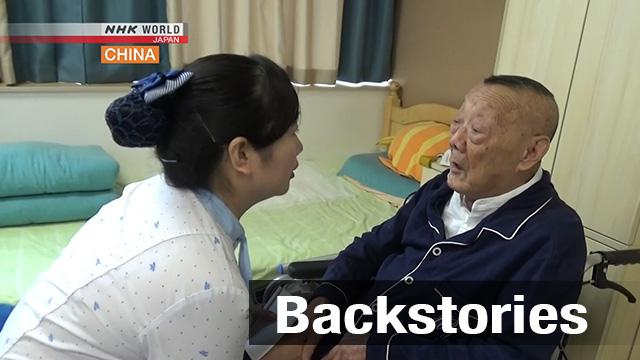Dementia care a challenge
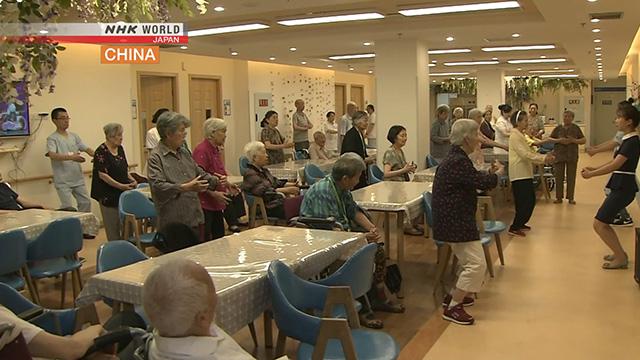
One specialist facility in Chengdu, Sichuan Province, has opened its doors to people with dementia. About 40 percent of its residents have the condition.
86-year-old Xie Honglin has memory impairment among other symptoms. He has difficulty remembering the name of his caregiver.
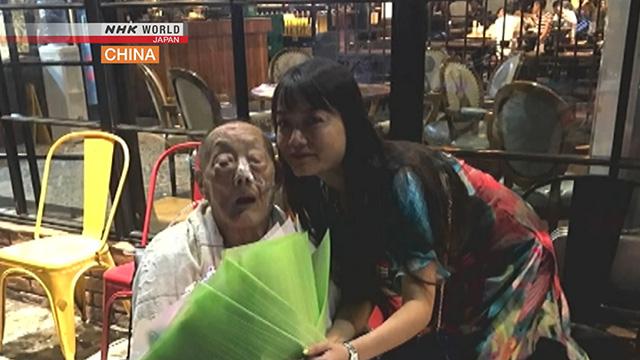
His daughter Xie Mao had been looking after him until he came to the facility last year. But his condition worsened after he had a stroke.
She says: "When he was too agitated to sleep, he stayed awake for 3 days in a row. He sometimes became violent and we realized we couldn't look after him anymore."
She began to look for institutional care for him, but there were few facilities willing to accept people with dementia and other conditions requiring specialist care.
Xie Mao says: "I made inquiries, but many of them turned us away when I explained his condition. When I eventually found the care home where he is now, I was so relieved."
About 10 million people in China are believed to have dementia. That's expected to increase by 300,000 each year. The director of another/the care home explained the crisis that's brewing.
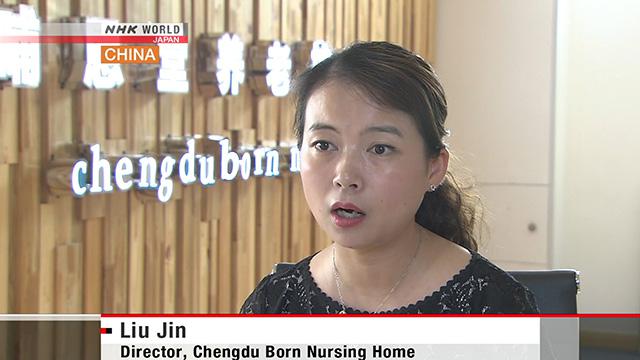
Liu Jin says: "Taking care of people with dementia needs highly skilled staff, plus only a few facilities accept sufferers.
"People hoping to find a place for a family member with dementia generally find it difficult."
Struggling caregivers
The facility started offering nursing care for dementia patients last year, but it faces many challenges. One worker takes care of 5 elderly people. The caregivers struggle to deal with all their duties with such limited resources.
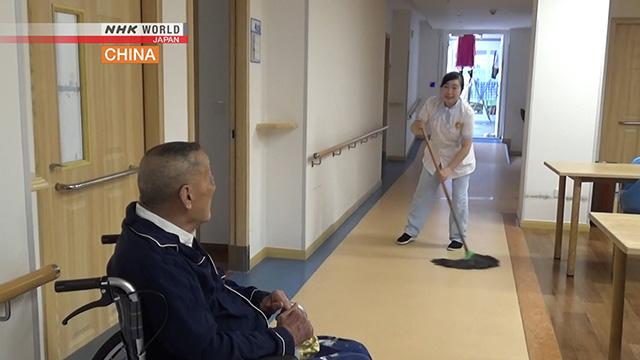
Tang Guoqiong is in charge of taking care of Xie. She believes getting him up and communicating as much as possible, rather than just leaving him in bed, helps with his condition.
She still has to do chores such as cleaning and changing beds while talking with him as there aren't enough staff to go around.
On top of that, staff often encounter problems they can't handle at their level of training and experience.
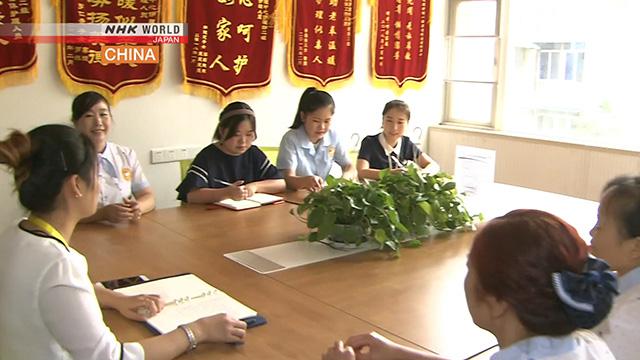
One of the caregivers told a facility meeting: "I was helping an elderly man get washed, but he didn't like it. He was verbally aggressive and even hit me. What can I do about it?"
The meeting finished with no one offering a good solution. Director Liu says: "There is urgent demand for caregivers, but supply has not caught up.
"I think we need to improve caregivers' skills, as well as increase the number of people working in the field."
Finding an answer
On the government policy side, social welfare issues such as dementia often are put on a back burner. Officials tend to focus on developing the economy.
And growing numbers of young people are moving into large cities to work, leaving their parents behind. It's a problem that's likely to be compounded in coming decades as parents who had children under the one-child policy become elderly.
Chinese media report that half of the country's households with elderly residents are seniors living alone or with their spouses. Estimates suggest this figure could soar to 70 to 90 percent in future.
And they warn that these demographics could lead to a skyrocketing number of people with dementia.
They say the government urgently needs to establish more facilities, train more care specialists and make sure seniors don't become isolated.
